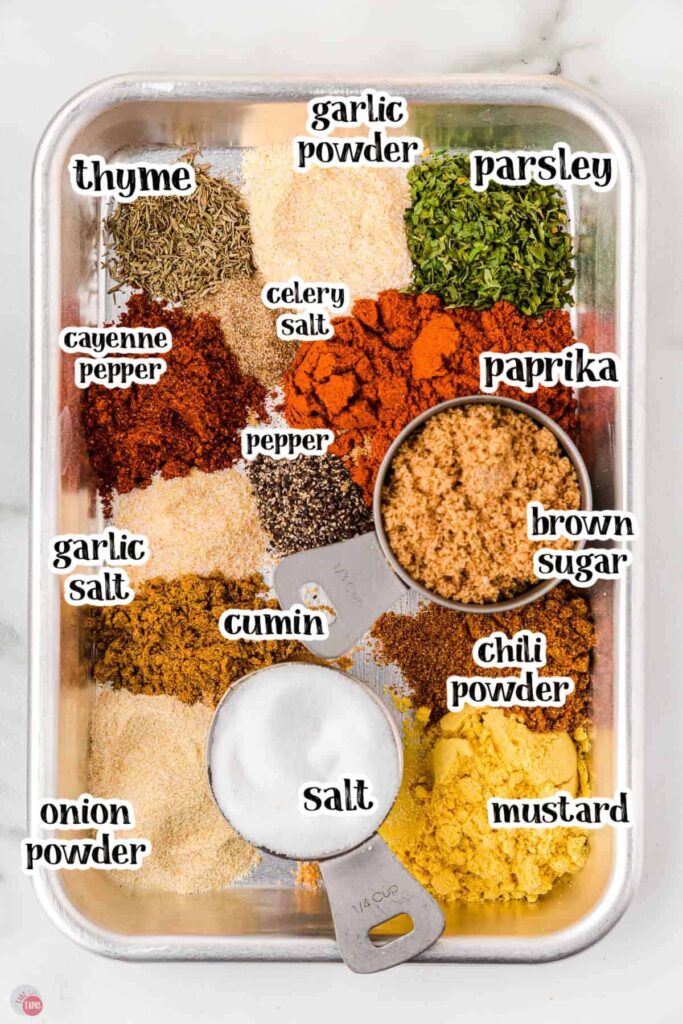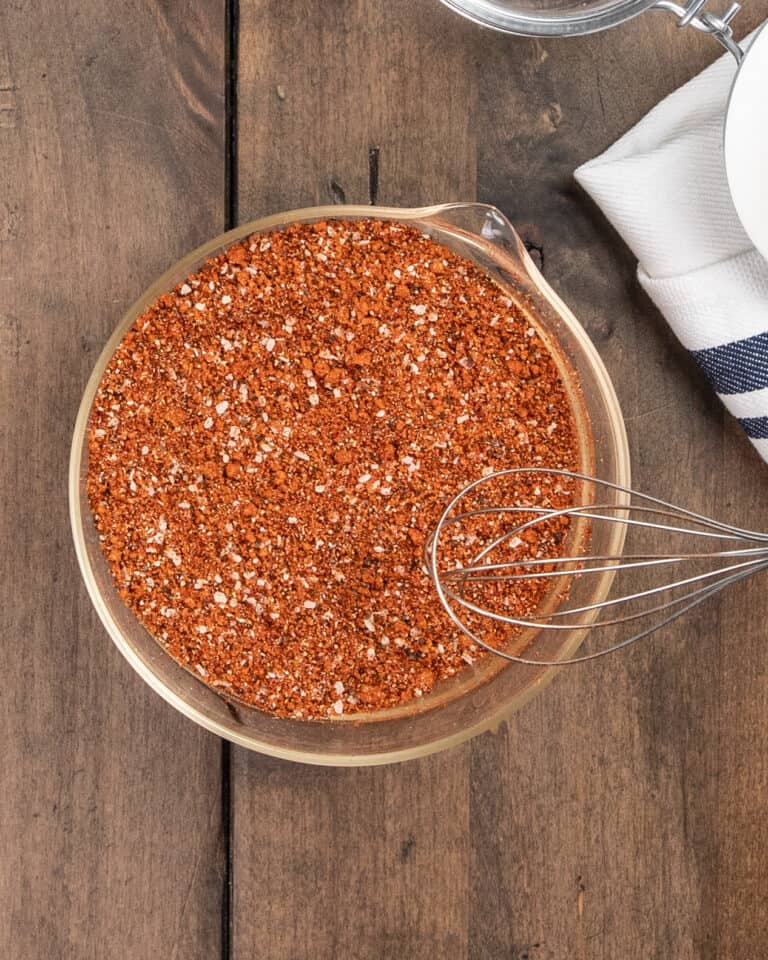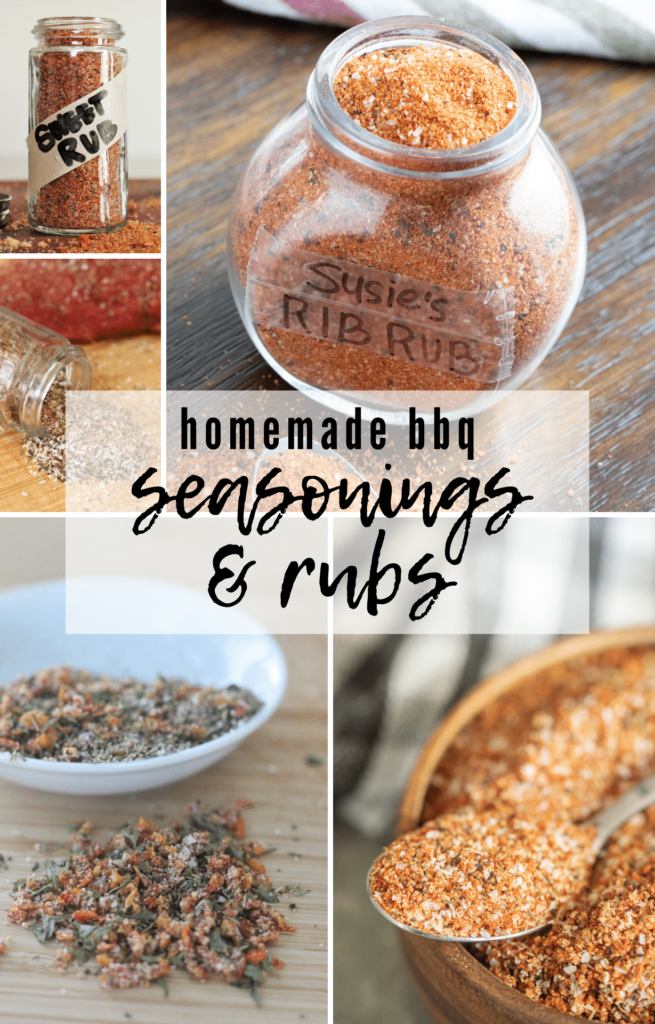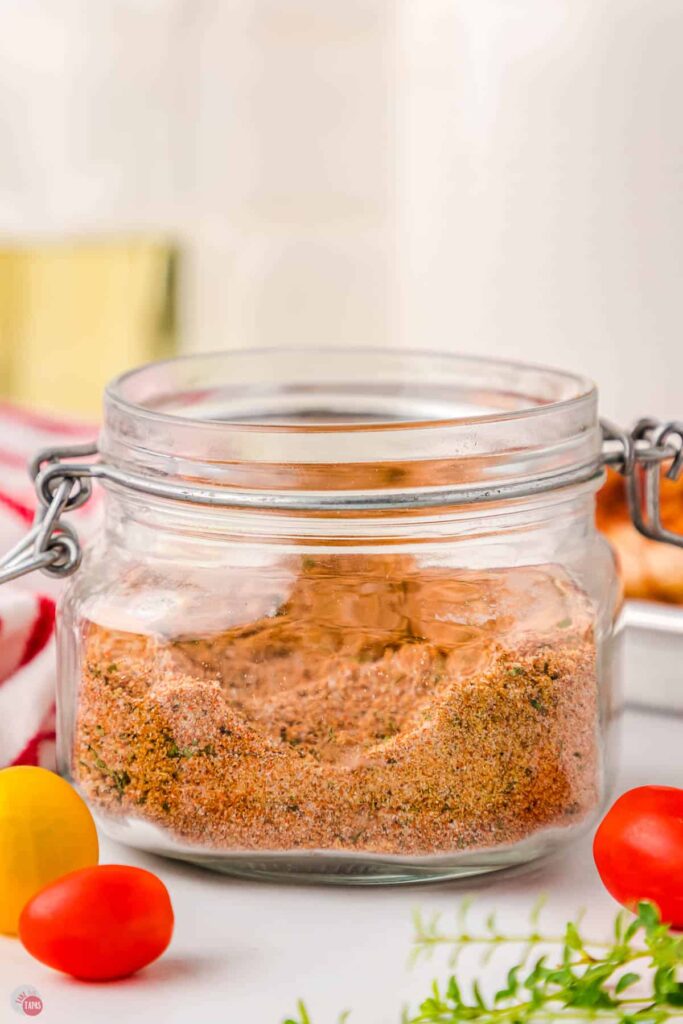If you love the smoky, mouthwatering flavors of barbecue, then this Ultimate Guide to Homemade BBQ Seasonings is a must-read for you. Whether you’re a beginner or a seasoned pro, this guide will take you step by step through the process of creating delicious homemade BBQ seasonings that will elevate your grilling game to a whole new level. From tangy rubs to savory marinades, you’ll learn all the essential recipes and techniques to make your next cookout an unforgettable experience. Get ready to impress your friends and family with your culinary skills as you master the art of homemade BBQ seasonings. Let’s fire up that grill and start seasoning!
Understanding BBQ Seasonings
What are BBQ seasonings?
BBQ seasonings are mixtures of spices, herbs, and other flavorings that are used to enhance the taste of barbecued foods. They are applied to proteins such as beef, pork, chicken, seafood, and even vegetables before grilling or smoking. BBQ seasonings add depth, flavor, and complexity to the meat, creating a delicious and mouthwatering taste.
The importance of homemade BBQ seasonings
Homemade BBQ seasonings offer a number of advantages over store-bought options. When you make your own seasonings, you have control over the ingredients, allowing you to tailor the flavors to your personal preferences. You can make adjustments to suit your desired level of heat, sweetness, saltiness, and other taste elements. Additionally, homemade seasonings are free from added preservatives and fillers, ensuring a healthier and more natural option for your barbecued dishes.
Benefits of making your own BBQ seasonings
Making your own BBQ seasonings not only gives you the ability to customize the flavors, but it also allows you to experiment with different ingredient combinations. This opens up a world of creativity, enabling you to create unique and signature flavor profiles that will impress your family and friends. By understanding the key spices and herbs that form the foundation of BBQ seasonings, you can confidently explore different recipes and techniques, elevating your grilling game to new heights.
Essential Ingredients for Homemade BBQ Seasonings
To create the perfect BBQ seasoning, there are several essential ingredients that you should have in your pantry. These ingredients form the base of most BBQ rubs and marinades and contribute to the overall flavor profile of your dishes.
Salt
Salt is a fundamental ingredient in BBQ seasonings as it helps to enhance the natural flavors of the meat and acts as a flavor conductor. It helps to tenderize the proteins and can also help to preserve the meat. There are different types of salt to choose from, such as kosher salt or sea salt, and each can add a unique flavor and texture to your seasoning blend.
Sugar
Sugar adds sweetness and helps to balance the flavors in your BBQ seasoning. It caramelizes on the meat during cooking, creating a beautiful crust and enhancing the overall taste. Common types of sugar used in BBQ rubs include brown sugar, white sugar, and honey powder. Experimenting with different types of sugar can yield different flavor profiles that complement different proteins.
Paprika
Paprika is a spice made from ground dried peppers and is commonly used in BBQ seasonings for its vibrant color and mild, slightly sweet flavor. It adds depth and richness to your rubs and marinades. There are different types of paprika available, such as sweet, smoked, and hot. Choose the type that aligns with your desired flavor profile.
Black pepper
Black pepper adds a touch of heat and earthiness to your BBQ seasoning. It also complements the other flavors in your rub or marinade, enhancing the overall taste. Freshly ground black pepper is recommended for the best flavor, as pre-ground pepper can lose its potency over time.
Garlic powder
Garlic powder adds a savory and aromatic element to your BBQ seasoning. It provides a distinct flavor that is often associated with BBQ dishes. It is important to use garlic powder rather than fresh garlic as it evenly distributes the flavor without overpowering the other ingredients.
Onion powder
Onion powder adds a slightly sweet and savory taste to your BBQ seasoning. It helps to balance the flavors and adds depth to the overall profile. Like garlic powder, it is recommended to use onion powder rather than fresh onion, as it blends better with the other spices.
Chili powder
Chili powder gives your BBQ seasoning a kick of heat and a depth of flavor. It is made from ground dried chili peppers and can vary in heat level based on the type of peppers used. Adjust the amount of chili powder to your desired level of spiciness.
Cayenne pepper
Cayenne pepper is known for its fiery heat and is often used in BBQ seasonings to add a spicy kick. Use it sparingly to avoid overpowering the other flavors in your blend. The amount of cayenne pepper can be adjusted to suit your heat tolerance.
Cumin
Cumin adds a warm and earthy flavor to your BBQ seasoning. It pairs well with the other spices and herbs, creating a well-rounded and balanced profile. Ground cumin works best in rubs and marinades.
Mustard powder
Mustard powder adds tanginess and a subtle heat to your BBQ seasoning. It enhances the flavor of the meat and complements the other ingredients. Use it sparingly to avoid overwhelming the other flavors.
By having these essential ingredients in your kitchen, you can create a variety of BBQ seasonings that will take your grilling game to the next level.

This image is property of www.taketwotapas.com.
Creating the Perfect Flavor Profile
Once you have the essential ingredients for your homemade BBQ seasonings, it’s time to experiment and create the perfect flavor profile for your taste buds. There are several factors to consider when crafting your blend to ensure harmony and balance in your dishes.
Experimenting with ratios
The ratio of the ingredients in your BBQ seasoning can greatly impact the final taste. Start with a balanced blend of salt, sugar, and spices, and adjust the amounts based on your personal preferences. Keep in mind that different proteins will require different ratios to achieve the best flavor. For example, a beef BBQ rub might have a higher proportion of black pepper and garlic powder, while a chicken BBQ rub may focus more on paprika and cayenne pepper.
Adjusting for heat and spice
The level of heat and spice in your BBQ seasoning can vary depending on your preference. If you enjoy mild flavors, reduce the amount of chili powder and cayenne pepper. For a bolder and spicier taste, add more of these ingredients. Remember to taste as you go and adjust accordingly to achieve the desired level of heat.
Balancing sweet and savory
Finding the right balance between sweet and savory flavors is key to a well-rounded BBQ seasoning. Experiment with different amounts of sugar and salt to achieve the perfect balance. Sweet flavors can be enhanced with additional brown sugar or honey powder, while savory profiles can benefit from extra garlic powder or onion powder.
Adding depth with herbs and spices
To add complexity and depth to your BBQ seasoning, consider incorporating additional herbs and spices. Popular options include thyme, oregano, rosemary, coriander, and smoked paprika. These herbs and spices can elevate the flavor profile and give your BBQ dishes a unique twist.
By taking the time to experiment with ratios, adjust for heat and spice, balance sweet and savory flavors, and add depth with herbs and spices, you can create a BBQ seasoning that is perfectly tailored to your taste.
Traditional BBQ Seasonings
Different regions in the United States have their own unique BBQ styles and flavors. Here are some traditional BBQ seasonings from various regions that you can recreate at home:
Kansas City-style BBQ rub
Kansas City-style BBQ rubs are known for their balanced flavor profile and sweet, smoky taste. They often include a combination of brown sugar, paprika, chili powder, garlic powder, onion powder, salt, black pepper, and a touch of cayenne pepper. This rub pairs well with beef, pork, and chicken.
Texas-style BBQ rub
Texas-style BBQ rubs are all about the savory flavors and bold heat. They typically feature a higher percentage of black pepper, chili powder, garlic powder, and onion powder, with less emphasis on sweetness. These rubs go well with beef, particularly brisket and ribs.
Memphis-style BBQ rub
Memphis-style BBQ rubs offer a balance of flavors, combining sweet, savory, and tangy elements. They often include brown sugar, paprika, chili powder, garlic powder, onion powder, salt, black pepper, and a hint of mustard powder. Memphis-style rubs are versatile and complement a variety of proteins.
Carolina-style BBQ rub
Carolina-style BBQ rubs are known for their tangy and vinegary taste. They feature a blend of brown sugar, paprika, chili powder, garlic powder, onion powder, salt, black pepper, and a generous amount of cider vinegar. This rub pairs exceptionally well with pork, especially pulled pork.
Recreating these traditional BBQ seasonings at home allows you to experience the authentic flavors of different regions right in your own backyard.

This image is property of theninjacue.com.
Regional BBQ Seasonings
In addition to the traditional BBQ seasonings, different regions across the United States have their own unique regional flavors. Here are some regional BBQ seasonings that you can try:
Southern BBQ rub
Southern BBQ rubs are known for their rich and smoky flavors. They often feature a combination of brown sugar, paprika, chili powder, garlic powder, onion powder, salt, black pepper, cumin, and a touch of cayenne pepper. These rubs are versatile and work well with a variety of proteins.
Southwestern BBQ rub
Southwestern BBQ rubs offer a bold and spicy flavor profile. They typically include a blend of chili powder, cumin, paprika, garlic powder, onion powder, salt, black pepper, and cayenne pepper. These rubs are perfect for adding a kick to beef, pork, or chicken.
Pacific Northwest BBQ rub
Pacific Northwest BBQ rubs often incorporate the flavors of the region, such as maple and salmon. They combine brown sugar, paprika, chili powder, garlic powder, onion powder, salt, black pepper, and a hint of cedar or alder smoke. These rubs pair beautifully with salmon, seafood, and poultry.
Cajun BBQ rub
Cajun BBQ rubs are known for their bold and spicy flavors. They feature a mixture of paprika, garlic powder, onion powder, salt, black pepper, cayenne pepper, thyme, oregano, and white pepper. These rubs are perfect for adding a kick to seafood, poultry, or grilled vegetables.
Exploring regional BBQ seasonings allows you to bring a taste of different parts of the country to your grill and add variety to your barbecue repertoire.
BBQ Seasonings for Different Proteins
Different proteins require different flavor profiles to truly shine on the grill. Here are some BBQ seasonings specifically designed for various types of proteins:
Beef and steak BBQ rub
When it comes to beef and steak, a simple yet flavorful rub can enhance the natural tastes. A beef and steak BBQ rub typically consists of a combination of salt, black pepper, garlic powder, onion powder, and a touch of paprika. This blend allows the rich flavors of the meat to shine while adding a hint of smokiness.
Pork and ribs BBQ rub
Pork and ribs benefit from a sweet and savory BBQ rub that complements their natural flavors. A typical pork and ribs BBQ rub includes brown sugar, paprika, chili powder, garlic powder, onion powder, salt, black pepper, and a hint of cayenne pepper. This blend adds a beautiful caramelized crust while keeping the meat tender and juicy.
Chicken BBQ rub
Chicken can benefit from a versatile BBQ rub that adds flavor without overpowering. A chicken BBQ rub often includes a combination of paprika, garlic powder, onion powder, salt, black pepper, cayenne pepper, and a hint of dried herbs such as thyme or rosemary. This blend enhances the taste of the chicken while giving it a lovely smoky flavor.
Seafood BBQ rub
Seafood requires a light and flavorful BBQ rub that enhances its delicate taste. A seafood BBQ rub typically consists of a combination of paprika, garlic powder, onion powder, salt, black pepper, and a touch of citrus zest or herbs such as dill or parsley. This blend adds a burst of freshness to the seafood while allowing its natural flavors to shine.
Vegetable BBQ rub
Vegetables can benefit from a BBQ rub that adds depth and enhances their natural sweetness. A vegetable BBQ rub often includes a combination of paprika, garlic powder, onion powder, salt, black pepper, and a hint of dried herbs such as thyme or oregano. This blend adds smokiness to the vegetables while complementing their natural flavors.
By using BBQ seasonings specifically formulated for different proteins, you can create dishes that are perfectly seasoned and bursting with flavor.

This image is property of heygrillhey.com.
Specialty BBQ Seasonings
In addition to traditional and regional BBQ seasonings, there are also specialty blends that offer unique and delicious flavors. Here are some specialty BBQ seasonings that you can try:
Coffee-infused BBQ rub
Coffee-infused BBQ rubs add a rich and earthy flavor to your dishes. They typically feature a combination of ground coffee, brown sugar, paprika, chili powder, garlic powder, onion powder, salt, and black pepper. This blend enhances the natural flavors of the meat while adding a unique twist.
Honey and bourbon BBQ rub
Honey and bourbon BBQ rubs offer a sweet and smoky taste that complements a variety of proteins. They often include a blend of honey powder (or granulated honey), bourbon-infused sugar, paprika, garlic powder, onion powder, salt, black pepper, and a touch of cayenne pepper. This blend creates a caramelized crust and adds a delightful depth of flavor.
Citrus and herb BBQ rub
Citrus and herb BBQ rubs infuse your dishes with a burst of freshness and brightness. They typically feature a combination of citrus zest (such as lemon or orange), dried herbs (such as thyme or oregano), paprika, garlic powder, onion powder, salt, and black pepper. This blend adds a tangy and aromatic element to your barbecue.
Spicy and smoky BBQ rub
For those who enjoy bold and fiery flavors, a spicy and smoky BBQ rub is the way to go. It often includes a combination of smoked paprika, chili powder, cumin, garlic powder, onion powder, salt, black pepper, and a generous amount of cayenne pepper or chipotle powder. This blend adds a smoky kick and intense heat to your dishes.
These specialty BBQ seasonings add unique flavors and cater to different taste preferences, allowing you to explore new and exciting taste sensations.
Tips and Techniques for Using BBQ Seasonings
Now that you have your homemade BBQ seasonings, it’s time to unleash their full potential. Here are some tips and techniques for using BBQ seasonings to elevate your grilling game:
Applying the rub
For dry rubs, evenly coat the meat with a generous amount of seasoning, gently pressing it into the surface. Make sure to cover all sides, ensuring a consistent flavor profile. Let the meat rest with the rub for at least 30 minutes, or refrigerate it overnight for the flavors to fully penetrate.
Marinating with BBQ seasonings
For wet marinades, combine the BBQ seasonings with a liquid such as oil, vinegar, or citrus juice to create a flavorful marinade. Place the meat in a resealable bag or a container and pour the marinade over it. Allow the meat to marinate for at least a few hours or overnight in the refrigerator to tenderize and infuse the flavors.
Enhancing flavors with injections or brines
For an extra boost of flavor and tenderness, consider using injections or brines. Injections involve injecting a flavorful liquid directly into the meat, while brining involves soaking the meat in a solution of salt, sugar, and other flavorings. Both methods help to enhance the moisture level and infuse the meat with additional flavors.
Grilling vs. smoking techniques
BBQ seasonings can be used in both grilling and smoking techniques, each offering a unique cooking method. Grilling involves direct heat and shorter cooking times, while smoking involves indirect heat and longer, slower cooking. Experiment with both methods to achieve different textures and flavors, and adjust the amount of seasoning accordingly.
By utilizing these tips and techniques, you can maximize the flavors of your BBQ seasonings and create outstanding grilled or smoked dishes.

This image is property of www.taketwotapas.com.
Storing Homemade BBQ Seasonings
Proper storage of your homemade BBQ seasonings is crucial to maintain their freshness and flavor. Here are some guidelines for storing your seasonings:
Choosing the right containers
Store your BBQ seasonings in airtight containers to prevent moisture and air from affecting their quality. Glass jars with tight-fitting lids or small metal tins work well for preserving the freshness of the seasonings. Avoid using plastic containers as they can absorb odors and affect the flavor.
Keeping seasonings fresh
To keep your BBQ seasonings fresh, store them in a cool, dark place away from direct sunlight and heat sources. Sunlight and heat can cause the spices to lose their potency and flavor. Additionally, be mindful of the expiration date of your spices and replace them as needed to maintain optimal flavor.
Proper labeling and organization
Properly label your BBQ seasonings with the blend name and date of preparation. This will help you keep track of their freshness and ensure you’re using the correct seasoning for each dish. Organize your seasonings in a way that is easy to access and visually appealing, making it a joy to experiment and use them in your cooking.
By following these storage practices, you can prolong the shelf life and maintain the quality of your homemade BBQ seasonings.
Recipes Using BBQ Seasonings
To get you started on your BBQ seasoning journey, here are a few recipes that showcase the versatility of these flavorful blends:
BBQ dry rub for ribs
Ingredients:
- 1/4 cup brown sugar
- 2 tablespoons paprika
- 1 tablespoon chili powder
- 1 tablespoon garlic powder
- 1 tablespoon onion powder
- 2 teaspoons salt
- 2 teaspoons black pepper
- 1 teaspoon cayenne pepper
Instructions:
- In a bowl, combine all the ingredients and mix well until evenly combined.
- Generously apply the dry rub to both sides of the ribs, pressing it into the meat.
- Let the ribs rest for at least 30 minutes, or refrigerate them overnight for a more intense flavor.
- Grill or smoke the ribs until tender and juicy, basting them with your favorite BBQ sauce during the last few minutes of cooking.
BBQ pulled pork rub
Ingredients:
- 1/4 cup brown sugar
- 2 tablespoons paprika
- 1 tablespoon chili powder
- 1 tablespoon garlic powder
- 1 tablespoon onion powder
- 2 teaspoons salt
- 2 teaspoons black pepper
- 1 teaspoon cayenne pepper
Instructions:
- In a bowl, combine all the ingredients and mix well until evenly combined.
- Generously rub the seasoning mixture onto the pork shoulder, covering it thoroughly.
- Let the pork shoulder rest for at least 1 hour, or refrigerate it overnight for a more intense flavor.
- Slow cook the pork shoulder until it is tender and easily shreds with a fork.
- Shred the pork and mix it with your favorite BBQ sauce for delicious pulled pork sandwiches.
BBQ chicken marinade
Ingredients:
- 1/4 cup olive oil
- 2 tablespoons apple cider vinegar
- 1 tablespoon honey
- 1 tablespoon paprika
- 1 teaspoon garlic powder
- 1 teaspoon onion powder
- 1 teaspoon salt
- 1/2 teaspoon black pepper
- 1/2 teaspoon dried thyme
Instructions:
- In a bowl, whisk together the olive oil, apple cider vinegar, and honey until well combined.
- Stir in the paprika, garlic powder, onion powder, salt, black pepper, and dried thyme.
- Place the chicken pieces in a resealable bag and pour the marinade over them.
- Seal the bag and massage the marinade into the chicken to ensure even coating.
- Refrigerate the chicken for at least 2 hours, or overnight for more flavor.
- Grill the chicken until cooked through, basting it with the marinade for added flavor.
BBQ shrimp seasoning
Ingredients:
- 1 tablespoon paprika
- 1 teaspoon garlic powder
- 1 teaspoon onion powder
- 1/2 teaspoon salt
- 1/2 teaspoon black pepper
- 1/4 teaspoon cayenne pepper
- Zest of 1 lemon
Instructions:
- In a bowl, combine the paprika, garlic powder, onion powder, salt, black pepper, cayenne pepper, and lemon zest.
- Toss the shrimp in the seasoning mixture until evenly coated.
- Let the shrimp marinate for 15-30 minutes to allow the flavors to infuse.
- Grill the shrimp over medium heat until they turn pink and are cooked through, about 2-3 minutes per side.
These recipes are just a starting point, and you can modify the seasoning blends and ingredients to suit your personal preferences and experiment with different flavors.
By understanding the art of BBQ seasonings, exploring traditional and regional flavors, and utilizing different techniques, you can take your BBQ skills to the next level. So fire up the grill, gather your favorite proteins and vegetables, and let the flavors of your homemade BBQ seasonings shine. Happy grilling!

This image is property of www.taketwotapas.com.
